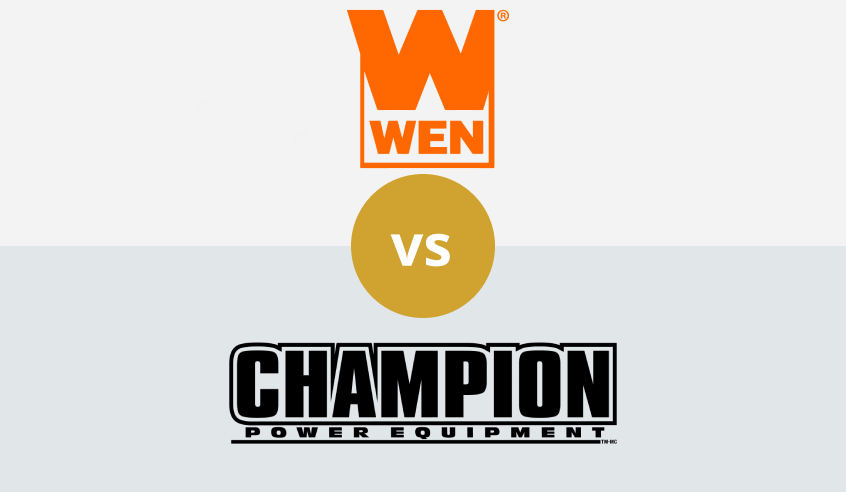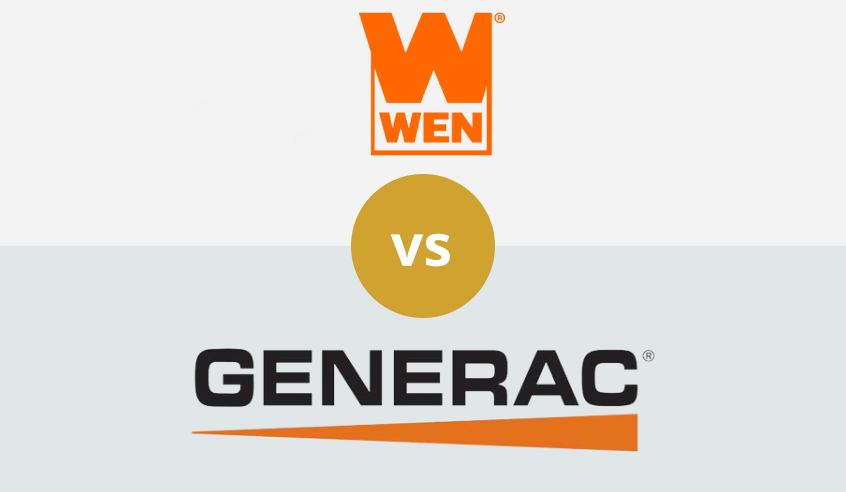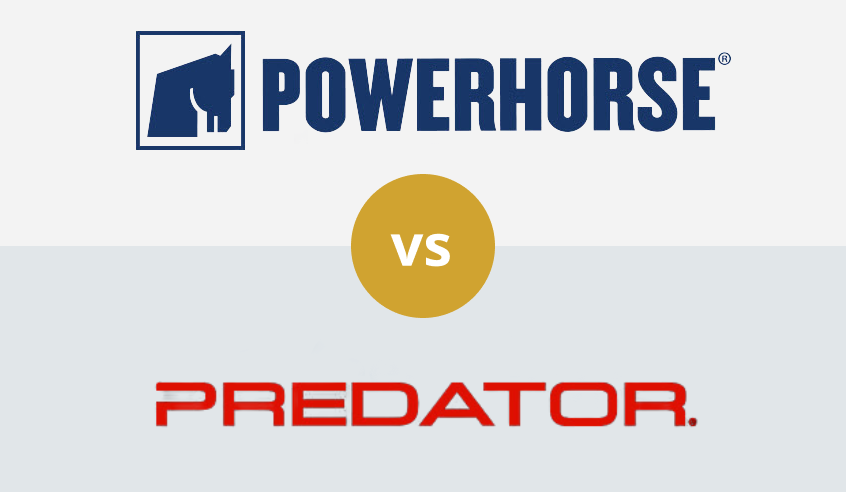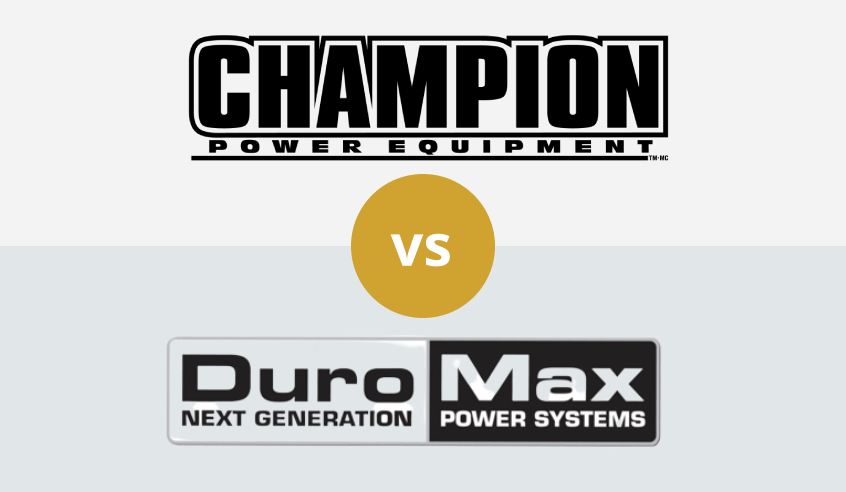
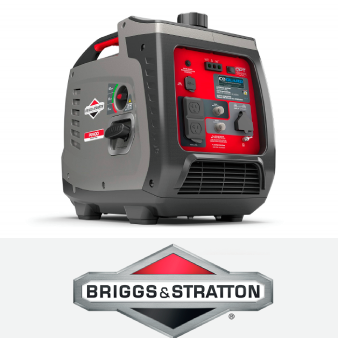
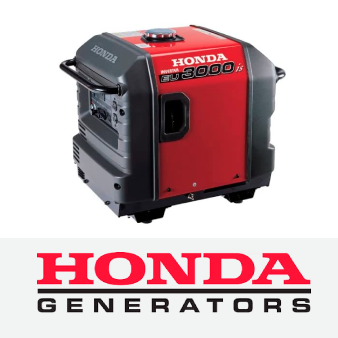
With inverter generators, you get clean energy that you can use to power even your mobile devices without having to worry about damage. In the Honda Power Equipment EU3000IS and Briggs & Stratton P2400, you have two very impressive inverter generators at different price points. They’re both from reputable brands, but you may have to decide which of the two suits your needs and is a better purchase. So should you go for the more affordable Briggs & Stratton model or, the more powerful Honda generator? To help you decide, a Briggs and Stratton vs Honda generator comparison may be necessary and has been provided below.
Having been founded in 1908 through a partnership between Stephen F. Briggs and Harold M. Stratton, Briggs & Stratton was already providing generators by the 1920s. However, most of these generators were for agricultural and military uses. The company only started dealing with consumer generators in the 2000s and has built quite a reputation for quality products in recent years.
As for Honda, it started as an outfit for developing internal combustion engines that were first attached to bicycles as an auxiliary power source. However, it was the first company to offer inverter generators to consumers in 1999. The company as a whole has a reputation for building reliable engines, whether they’re for vehicles, motorcycles, or generators.
Ultimately both Honda and Briggs & Stratton are among the top brands in the inverter generator market for home use, and it’s not uncommon for some of their products to compete directly with each other. There are, of course, other brands as well, and if you’re looking to compare other models from different brands, our list of the best inverter generators is a great place to start looking.
| Briggs & Stratton P2400 | Honda Power Equipment EU3000IS | ||
| Type | inverter | inverter | |
| Peak Watts | 2400 | 3000 | |
| Rated Watts | 1800 | 2800 | |
| Engine | 4-stroke OHV, 79cc | Honda GX200, 196cc | |
| Fuel Tank Capacity | 1 gal. | 3.4 gal. | |
| Runtime | 8 hrs @ 1/4 load | 19.6 hrs @ 1/4 load | |
| Outlets | (2) 230V 16 Amp, (1) 12V 5 Amp DC, (2) USB | (1) 20A 125V Duplex, (1) 30A 125V Locking Plug | |
| Start Type | recoil | recoil, electric | |
| Dimensions | 20.04 x 12.24 x 17.36 in. | 25.9 x 17.6 x 22.0 in. | |
| Weight | 50 lbs. | 130.7 lbs. | |
| Warranty | 3 years | 3 years | |
| VIEW ON AMAZON | VIEW ON AMAZON |
At first glance, the Honda Power Equipment EU3000IS may not seem like it compares well with the Briggs & Stratton P2400. After all, it’s a larger, more expensive device that puts out more power than the Briggs & Stratton model. However, the power difference isn’t huge, especially regarding the starting wattage.
Additionally, some potential buyers may wonder if it’s worth upgrading to the Honda EU3000IS or if they should buy the P2400 from Briggs & Stratton. The answer isn’t as simple or easy as choosing one based on price or power. Other considerations may be able to sway the decision one way or the other.
Ultimately, it all depends on how you intend to use your generator purchase once you have it at your door.
As the larger, more expensive option of the two, it isn’t really surprising that the Honda EU3000IS is more powerful. It’s rated at a peak of 3000 watts and can maintain 2800 watts when running at full power. This makes it ideal for running several household appliances simultaneously, especially if they don’t consume too much power. Additionally, it’s perfect for R.V.s and can run most 13,500 BTU recreational vehicle A.C. units.
The generator is powered by a 196cc Honda GX200 engine and even offers electric startup. However, when that doesn’t work due to extraneous circumstances, there’s a recoil backup.
As for the P2400 from Briggs & Stratton, it comes with a 79cc 4-Stroke OHV engine that provides 2400 watts of power when turning on connected devices. However, its running wattage maxes out at 1800. Depending on the appliances you want to run simultaneously, either one may be a good choice.
Nevertheless, the Honda is more suited to those who tend to run multiple power-hungry appliances at the same time.
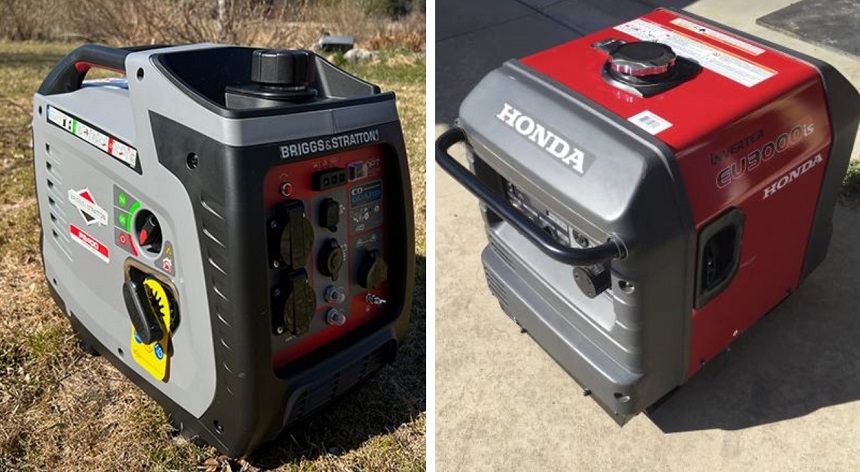
Both the P2400 and EU3000IS are gas-powered, and given that the latter produces more power, it also consumes more fuel. This is evident in the size of the tank, which has a 3.4-gallon capacity. The Briggs & Stratton model doesn’t use as much fuel to keep up with its power demands making the 1-gallon fuel tank sufficient.
Both generators produce good fuel economy figures, especially in relation to their workload. The Honda EU3000IS, for instance, can run for close to 20 hours on ¼ load. Its counterpart, the Briggs & Stratton P2400, on the other hand, runs for only 8 hours on ¼ load. However, considering that it only has a 1-gallon fuel tank running for 8 hours is quite impressive.
Also, despite the face value figures seemingly favouring the Honda Generator, the Briggs & Stratton option uses significantly less fuel while running. If you do the math, the P2400 only consumes 19.125 fluid ounces of gasoline per hour. Conversely, the Honda uses 26.633 fluid ounces for the same period when running at ¼ load.
Nevertheless, comparing their fuel efficiency in this way may not be fair since the Honda would likely be powering more equipment.
Also worth noting is that both generators have technology to help boost the fuel economy figures. The Honda has Eco-Throttle, which controls the engine’s speed according to the load, which should lead to less fuel consumption. The P2400’s quiet power technology also works the same way, enhancing the generator’s fuel efficiency.
With regard to safety, both generators have technology that monitors C.O. levels and shuts down the engine if they’re too high. The CDC Trusted Source Carbon Monoxide (CO) Poisoning Prevention | NCEH | CDC Every year, at least 430 people die in the U. S. from accidental CO poisoning. Approximately 50,000 people in the U.S. visit the emergency department each year due to accidental CO poisoning. There are steps you can take to help protect yourself and your household from CO poisoning. Change the batteries in your CO detector every six months. If you don’t have a battery-powered or battery back-up CO detector, buy one soon. www.cdc.gov notes that at least 430 people in the U.S. die annually from accidental carbon monoxide poisoning. These safety features limit the risk of that happening to you.
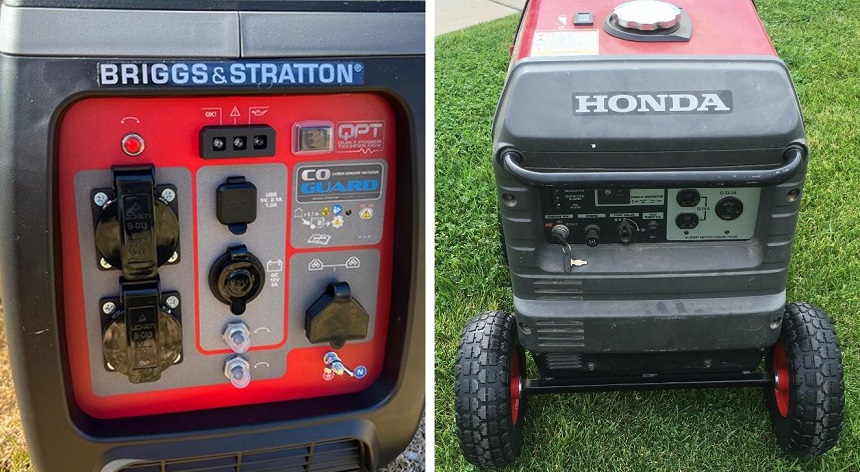
The control panels on both devices are easy to use and should be a cinch to use for most people. However, there are differences in the outlets available, some of which favor the Briggs & Stratton generator. This is because the EU3000IS from Honda doesn’t have many options, with the only available outlets being one 20A 125V Duplex and one 30A 125V locking plug.
On the other hand, the P2400 offers dual 230V, one 12V D.C. connection, and even two USB ports for devices like smartphones.
Both generators are intuitive, with minimal controls and simple control panel layouts. However, you still need to know how to do some maintenance, like refilling the tank, changing the oil, etc. These are minimal step processes that are highlighted clearly in the respective manuals.
As for the noise levels, you get the same noise output from both generators despite the Honda having a larger engine. Both are rated at about 57 or 58 dB, which should be acceptable even for your neighbors.
The portability has to go to the P2400 from Briggs & Stratton. It’s smaller and lighter, which makes it easier to transport it in the trunk of your car to a tailgating event. Carrying the Honda EU3000IS will be much more of a hassle since it weighs more than twice the weight of its counterpart.
Durability levels are pretty similar, and the same can be said of the warranties from both manufacturers. After all, you get three-year coverage with whichever of the two options you pick.
As for the price, the P2400 is significantly cheaper, which makes sense given its engine capacity and power output. In fact, it’s priced at almost a 1/3 of the Honda’s price.
In the Briggs and Stratton vs Honda generator comparison, both options have advantages. In the case of the Honda, power and runtime are some of the major advantages. However, we find the Briggs & Stratton model to be the better purchase. It’s significantly more affordable; you can buy two generators and still have some money left over for a parallel kit. This should help you match and even exceed the power capabilities of the Honda generator for a fraction of the price.
